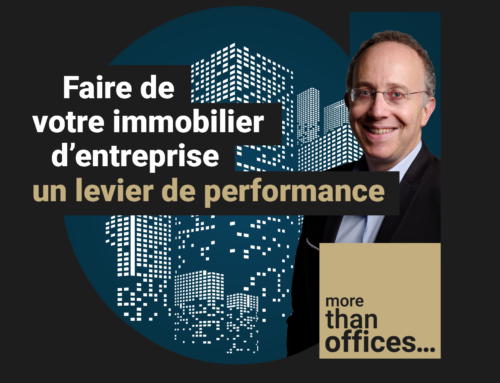Article | Freelancers are in the lift!

Freelancers, self-employed people, contractors and other independent workers are inexorably growing in power and are becoming an indispensable force for companies, with whom the latter must learn to work and cohabit. This has an impact on the design of offices and the reinvention of professional spaces.
They are increasingly common in company lifts. Their numbers are growing, their skills are in demand, their organisational flexibility and responsiveness are appreciated by companies. And so is their price competitiveness! The freedom associated with their self-employed status is reflected in the increased flexibility of workspaces, which are becoming like them: versatile, scalable, agile. With freelancers, it is not only the hours that can be adjusted: the working environment can be adjusted too!
The lift is filling up with more and more freelancers...
The phenomenon is long-standing but is taking on a new dimension, even if we should be wary of prophecies about the end of salaried work. In the United States, freelancers now account for just over a third (34%) of the workforce and it is thought that one in two workers could be self-employed within ten years. In Europe, the number of freelancers has increased by 45% in a decade.
France has 2.3 million ofthem out of a total of 28 million working people. Their share is exploding among young people. And this is only the beginning, given the surge in the "desire for independence" among all working people anxious to no longer report to a single employer, eager to multiply assignments and experiences, and determined to favour freedom over job security. Freelance status is not necessarily a social lift, but it is synonymous with movement!
They inspire the company, which must know how to manage and welcome them
To be agile, to have good specialists work on a case-by-case basis and without statutory rigidity, to optimise the payroll by using loyal external service providers? This is the ambition of a large number of companies. They rely on freelancers for this. An urgent and precise need? The company picks up the phone - or uses one of the many specialised platforms - and the freelancer stops by on the floor, ready to get started.
Managing this qualified but mobile and demanding workforce - especially when their order books are full and their fees are paid in full - is no easy task. It has become a real job, halfway between HR and purchasing, with an explicit job title: Chief Freelance Officer (CFO). Not to be confused with the Chief Finance Officer!
Freelancers "bring knowledge and know-how that helps the company to innovate: they are important agents in the transformation of the company," says Laetitia Vitaud, a specialist in the future of work. According to a recent study by Hays, while 63% of companies surveyed have never used freelancers, 30% plan to use them more frequently in the next twelve months. For a specific and punctual need requiring external skills. Or to satisfy a recurring need without going through the hiring process. Or to lighten the workload of teams.
It is up to the company to manage this additional workforce, to ensure that it is well treated and delivers under good conditions. This can be done by providing a suitable workspace. "Whether companies like it or not, they will have to deal with this explosion in self-employment and learn to manage these freelancers, in addition to their own employees," says Bertrand Moine, co-founder of Digital Village.
Coworking spaces as a hub between business and the self-employed
Coworking is one of the answers to the difficulties associated with the solitary work of the "free". It is not surprising that the number of these places of social innovation and reinvention of working conditions is exploding. Freelancers are choosing them for the quality of the environment and Internet access, the nature of the offer (open workplaces, meeting rooms, activities, etc.) and the possibility of building a network and working in community on certain projects. Not to mention the simplicity and flexibility of the rental formulas.
The flexibility of the forms of lease (monthly, daily or even half-day), the reduced structural costs and the versatility of the uses of these third places also inspire companies which see these places as a real alternative to the lack of space, temporary or otherwise, within their offices.
Coworking centres are a convenient way to house project groups in a place open to freelancers, with dedicated spaces, flex-work rooms and occasional tailor-made privatisation. Employees or contractors: both populations can work together on a daily basis while maintaining their independence.
Revolution in the head, revolution in the office
There is no doubt that the rise of the self-employed of all kinds has, and will continue to have, a profound impact on the demand for 'agile' offices.
They have contributed to the advent of modular, multitasking, connected, open and integrated workspaces in their urban ecosystem... and composed of territories adapted to all categories of occupants, internal and external. Including freelancers, who are increasingly pressing on all the floors of the lift!
New ways of working, space as a management tool, rethinking your premises to accelerate your transformation and optimise your performance, our team is here to advise and support you. Contact us for more information!






